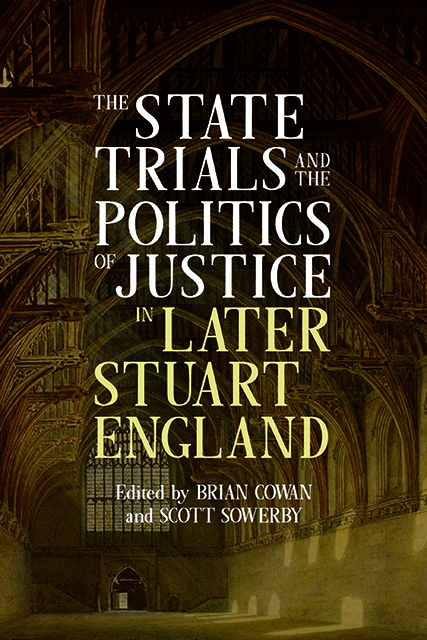9 - Relitigating Revolution: Address, Progress, and Redress in the Long Summer of 1710
Published online by Cambridge University Press: 14 January 2023
Summary
In a formal sense, the celebrated and contentious trial of the Tory clergyman, Doctor Henry Sacheverell, ended on the 23rd of March 1710. But if one takes a broader view of the turmoil surrounding the controversies provoked by Sacheverell’s prosecution, it is better to say that the real contest had only just begun. The contested nature of the guilty verdict, which was obtained only after a prolonged and hotly debated trial, along with the ideological debates about the nature of the Glorious Revolution of 1688 and the so-called ‘Toleration Act’ which followed in its wake, made it clear to all concerned that the Doctor’s trial had really settled nothing. Indeed, if anything, Sacheverell and his supporters acted as if they had won an acquittal. By contrast, the Whig regime that had managed to eke out a lukewarm guilty verdict played up Sacheverell’s conviction as proof that the political doctrines espoused by the Tories had been effectively refuted and condemned by the highest court in the kingdom.
The questions raised at Sacheverell’s trial were substantial: they aimed at the heart of the Glorious Revolution and the tenuous ‘Revolution Settlement’ that had developed, more by circumstance than by design, during the two decades after James Stuart made the fateful decision to abandon his supporters in Britain and move his court to France. Was the accession of William and Mary an instance of legitimate resistance to tyrannical authority or not? With regard to the ‘toleration’ of Protestant dissent enacted by law, Sacheverell’s prosecution raised the question: Was the Toleration Act something like a new amendment to the ancient constitution, or was it (as Sacheverell and his Tory supporters would have it) a begrudging indulgence granted to heretics and sinners for the time being, but certainly subject to further alteration by new legislation?
Although he had been found guilty of high crimes and misdemeanours by the House of Lords, Sacheverell’s punishment was ultimately more symbolic than anything else: his infamous sermon The Perils of False Brethren (1709) was ordered to be burned by the common hangman, and he was banned from preaching for three years.
- Type
- Chapter
- Information
- Publisher: Boydell & BrewerPrint publication year: 2021



